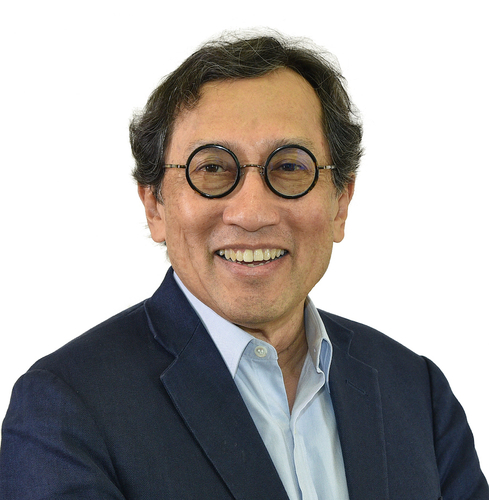
Feature image: Ambassador Bilahari Kausikan discusses Singaporean foreign policy and Southeast Asia at Yale.
By Nick McGowan
Ambassador Bilahari Kausikan, former permanent secretary of the Ministry of Affairs of Singapore and ambassador-at-large, began his lecture on September 30 with a story from a Vietnamese colleague who has high expectations of the newly appointed Vietnamese government. His counterpart said that “every Vietnamese leader must be able to work with China, every Vietnamese leader must be able to stand up against China, and if they cannot, they do not deserve to be a leader.”
This interaction underpinned the main idea of his lecture and his larger mission during his thirty-seven years in global affairs: to get major powers to think about Southeast Asia in more nuanced ways, outside of the binary framework that seems to define the American state of mind. Aptly named “How to Think about Southeast Asia,” Ambassador Kausikan’s lecture gave students, faculty members, and members of the New Haven community insight into the history of Southeast Asia’s interactions with superpowers, his views on U.S.-China relations and their interactions with Southeast Asia, and the role of the Association of Southeast Asian Nations (ASEAN) today.
Ambassador Kausikan asserted that, in recent history, the United States has largely viewed Southeast Asia as a competitive playing field and would jostle with other global powers for influence in the region—formerly against the Soviet Union and now against China. Southeast Asian policymakers have been cognizant about this perspective for decades and have decided that there is no need to align themselves with a superpower as long as they can maintain good relations with all sides. Kausikan argued that it is the superpowers’ inability to look at Southeast Asia in a more complex way that prevents these powers from working better with their Southeast Asian partners, citing examples of New York Times headlines proclaiming a drastic shift in the region’s geopolitics after Philippines President Rodrigo Duterte visited China for the first time to illustrate how people fail to look at the bigger geopolitical picture. With strengthening Japan-Philippines relations and the continued American military presence in the Philippines, the Philippines and other countries in Southeast Asia continue to balance between China and the United States, and superpowers must broaden their narrative of Southeast Asia to take into account all factors and not resort to their presumptions.
Later in the presentation, Kausikan criticized the United States’ historical foreign policy in Southeast Asia, including the Clinton administration’s policy of “democracy by decapitation” in Indonesia and successive U.S. administrations’ inability to take ASEAN as a partner, seeing it as a competitor for influence in the region. He praised parts of U.S. foreign policy under the Trump administration, notably his enforcement of “red lines” such as taking military action in Syria and said that he believes the United States has maintained its position in global affairs due to its political and economic might rather than the mainstream consensus that the United States has taken a back seat.
At the end, Kausikan told the audience that Singapore would not be a good intermediary for the U.S.-China conflict or any conflict in Southeast Asia due to its status as a Chinese-majority country—indicative of distrust towards the Chinese diaspora throughout the region. Instead, he suggests that ASEAN has been a good forum for diplomacy in the region (albeit, it has some difficulties getting work done), and while it is not perfect, strongly criticizing the organization would not be dissimilar from “criticizing a cow for being an imperfect horse.” ASEAN’s goal of inclusive dialogue could prove a model for cooperation and communication with major powers — if they would only be more involved in the process.
Ambassador Bilahari Kausikan currently serves as the Chairman of the Middle East Institute at the National University of Singapore, and as a Senior Fellow at the Singapore Management University’s School of Social Sciences. He was formerly the Permanent Secretary of the Ministry of Foreign Affairs of Singapore from 2010 to 2013 and Second Permanent Secretary from 2001. He has also served as Singapore’s Ambassador to the Russian Federation and as Singapore’s Permanent Representative to the United Nations.
This lecture was part of the annual George Herbert Walker, Jr. Lecture in International Studies series, first established in 1986. Previous lecturers in the series include George Schultz, James Baker III, former U.N. Secretary-General Ban Ki-Moon, and other notable international figures.
Nick McGowan is a first year in Pauli Murray College. He can be contacted at nick.mcgowan@yale.edu.